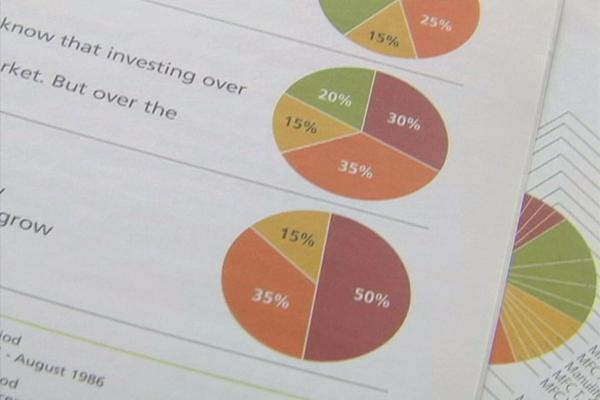Markets
Exclusive: Khosla Ventures leads seed round in mRNA biotech looking to reverse aging by lengthening telomeres
A tiny biotech startup called Rejuvenation Technologies is the latest to chase a massive ambition in reversing aging, a buzzy and often controversial research…

A tiny biotech startup called Rejuvenation Technologies is the latest to chase a massive ambition in reversing aging, a buzzy and often controversial research area emerging in biotech.
Rejuvenation announced Wednesday it has raised $10.6 million in a seed round led by Khosla Ventures. The California startup, founded by two Stanford PhD scientists, believes now is the right time to develop drugs that lengthen telomeres, which act like protective caps on the ends of chromosomes. The field has experienced plenty of ups and downs over the last couple of decades. No biotech has yet to successfully develop a drug targeting these DNA sequences.
 Alex Morgan
Alex MorganThe role of telomeres in aging is backed by decades of research going back to the 1980s, said Alex Morgan, a partner at Khosla Ventures. As cells divide, telomeres get shorter. If they get too short, they can’t cover up the ends of chromosomes, which can trigger a DNA damage response in cells.
Rejuvenation’s idea is straightforward: lengthen telomeres. The biotech is developing drugs that deliver mRNA in lipid nanoparticles that instruct cells to make a protein that binds to and extends a cell’s telomeres. Its lead drug candidates are targeting serious lung diseases like idiopathic pulmonary fibrosis. The company did not provide a timeline for entering the clinic but said it will soon start IND-enabling toxicology studies.
Khosla Ventures has backed several anti-aging startups in recent years, including BioAge Labs, Rubedo Life Sciences and Loyal. Morgan said many of pharma’s blockbusters work by treating a key element of illness. For instance, Humira treats inflammation, which has led to approvals in a wide range of diseases. Morgan said that tackling one of the key characteristics of aging could lead to similar, wide-ranging impact on patients.
“Many of the current diseases where we have unmet need are diseases of aging,” Morgan said, adding an issue like shortened telomeres can cause “cascading effects” throughout the body.
Rejuvenation’s history goes back decades. CEO John Ramunas said he first registered the company’s name in 2000, shortly after he first started researching telomeres. He’s maintained over 100 domain names related to rejuvenation since. “We’ve dedicated our lives to this,” he said.
Ramunas has worked with Glenn Markov, his co-founder and chief operating officer, for 12 years. Both worked in Helen Blau’s biology laboratory at Stanford, earning their PhDs in 2014 and 2018, respectively.
Ramunas said he remembers getting positive lab results at Stanford in 2010, expecting a flood of interest from pharma companies. Instead, no one knocked on Stanford’s doors.
Eventually, Ramunas and Markov decided to start their own company to move it forward. Rejuvenation got up and running in 2018, joining Y Combinator and later meeting Khosla’s Morgan. Other investors in the seed include Shanda Ventures, Asymmetry Ventures, Merchant Adventures, Longevity Tech Fund and Y Combinator.
Morgan said he saw Rejuvenation as a “strong technical team coming out of a strong lab.” He added it also has interesting intellectual property, particularly a patent around using mRNA to deliver telomerase.
At the same time, there’s been increasing interest in a range of longevity approaches. Alphabet-backed Calico Life Sciences was founded in 2013 to better understand and treat aging and, more recently, there have been multiple well-funded biotechs investigating the idea of reprogramming cells using epigenetics, most notably Altos Labs.
“There’s been a tidal shift in mainstream and academic acceptance of interventions to reverse or slow mechanisms of aging,” Ramunas said. “We’ve benefited from that immensely.”
While Rejuvenation will start by testing a drug in patients with idiopathic pulmonary fibrosis, which Ramunas said has “clear causal evidence” that links short telomeres with the disease, he believes telomere extension has far-reaching potential.
“We have a spreadsheet with over 50 indications in which telomeres are causative or exacerbating,” he said.

Wittiest stocks:: Avalo Therapeutics Inc (NASDAQ:AVTX 0.00%), Nokia Corp ADR (NYSE:NOK 0.90%)
There are two main reasons why moving averages are useful in forex trading: moving averages help traders define trend recognize changes in trend. Now well…
Spellbinding stocks: LumiraDx Limited (NASDAQ:LMDX 4.62%), Transocean Ltd (NYSE:RIG -2.67%)
There are two main reasons why moving averages are useful in forex trading: moving averages help traders define trend recognize changes in trend. Now well…
Seducing stocks: Canoo Inc (NASDAQ:GOEV 5.43%), Ginkgo Bioworks Holdings Inc (NYSE:DNA -1.12%)
There are two main reasons why moving averages are useful in forex trading: moving averages help traders define trend recognize changes in trend. Now well…














